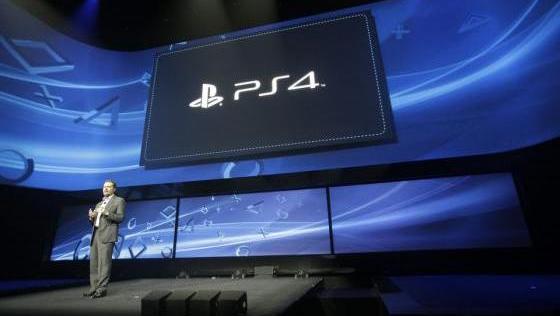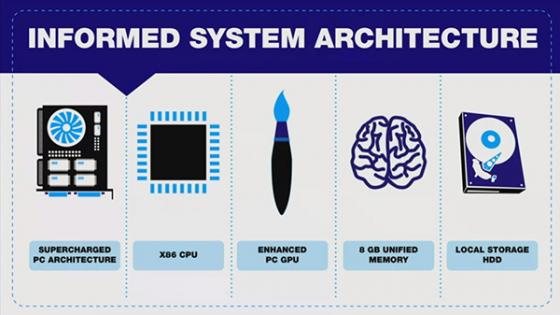What the Next-Gen Means for the PC
As the dust begins to settle following Wednesday's PlayStation announcement, we finally have our first definitive details of the "next-gen" - the eighth according to those keeping count - to pore over and analyse. It may still be a little early to say for certain, but someone find me a prediction tree, because I'm about to go out on a limb:
The next-gen consoles are going to be the best thing to happen to PC gaming since DirectX.
A number of our more PC focused readers are liable to have fallen on the floor and started frothing at the mouth by now, but bear with me. Let's start by looking at the hardware confirmed to be in the forthcoming PlayStation 4, in case you'd forgotten:
- 8 core x86-64 AMD "Jaguar" CPU
- Next-generation Radeon based GPU
- 8 GB GDDR5 RAM
- Unspecified hard disk drive
- Blu-ray drive
- Super-Speed USB (USB 3.0)
- Gigabit Ethernet
- 802.11n wireless

All very interesting and tempting, but I want to focus on the first point - an 8 core x86 processor; coincidentally the same (or at least similar) CPU as mentioned in the latest rumours regarding the Xbox 360's successor. This is big!
If you're not familiar with the various CPU architectures, let me put it another way, (assuming the Xbox rumours are correct) both the PS4 and the new Xbox will be powered by a processor directly compatible with that in your PC. Whilst the original Xbox had an x86 processor as well, this is the first time both of the big players have taken this route.
But "why is this important?" I hear you ask; it's simple really. The current generation of consoles is the first time we've regularly seen console and PC games with shared development cycles. Previously, with a few exceptions, the console and PC versions of games were completely different. It's not all been good news though; whilst a number of console games have come to the PC in recent years, they've often been criticised for being late and/or unoptimised (I'm looking at you Rockstar).
With PlayStation, Xbox and PC all built upon the same CPU architecture, the theory is that the task of porting games between the platforms should become relatively straightforward compared to previous iterations. Obviously this won't solve the ever present concern regarding the trend towards dumbing down and "consolisation" of the games themselves.

One other factor to bear in mind is that this could be big news for AMD. Besides the fact that it looks like they'll be supplying the CPU and GPU for both consoles, the multi-core setup plays into their hands. Since the release of Intel's Core line of processors, AMD's offerings have been lacking in terms of raw power, but winning the battle when it comes to multi-threaded applications. With 8 cores available on the new consoles, there's every likelihood that the PC builds will be optimised for threads over speed as well.
It's still too soon to say whether anyone looking to build a new gaming PC should automatically favour an AMD setup; it's worth noting that the Jaguar CPU is designed for low heat/power consumption rather than performance, so there's every chance that Intel will stay competitive without having to radically rethink their strategy.
When all's said and done, the notion of a gaming PC isn't going anywhere yet, but it may just have inadvertently been given a boost by its competitors.








COMMENTS
Platinum - 03:14pm, 18th July 2016
Certainly going to be interesting, ports should be a lot easier, lets see what happens.